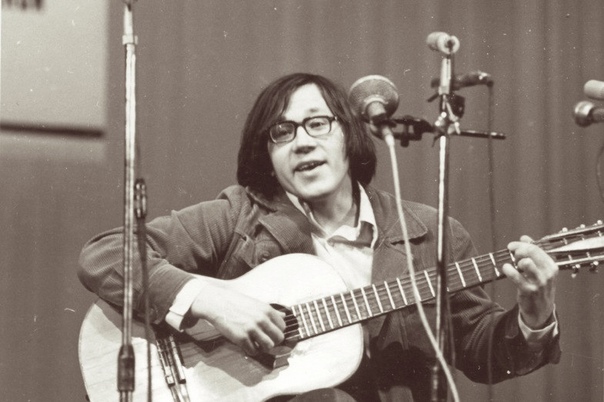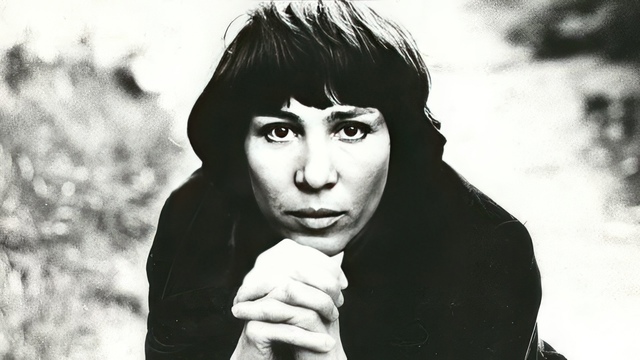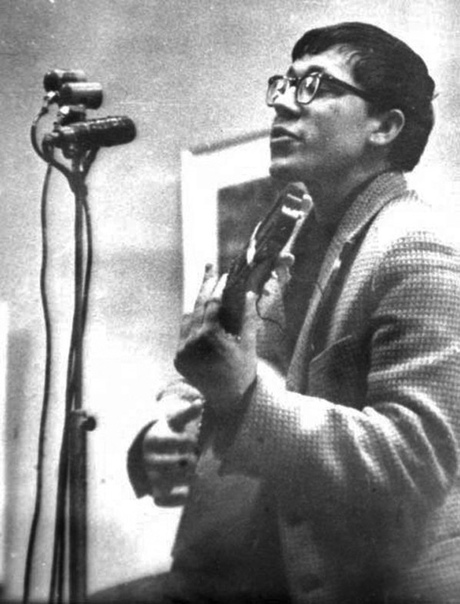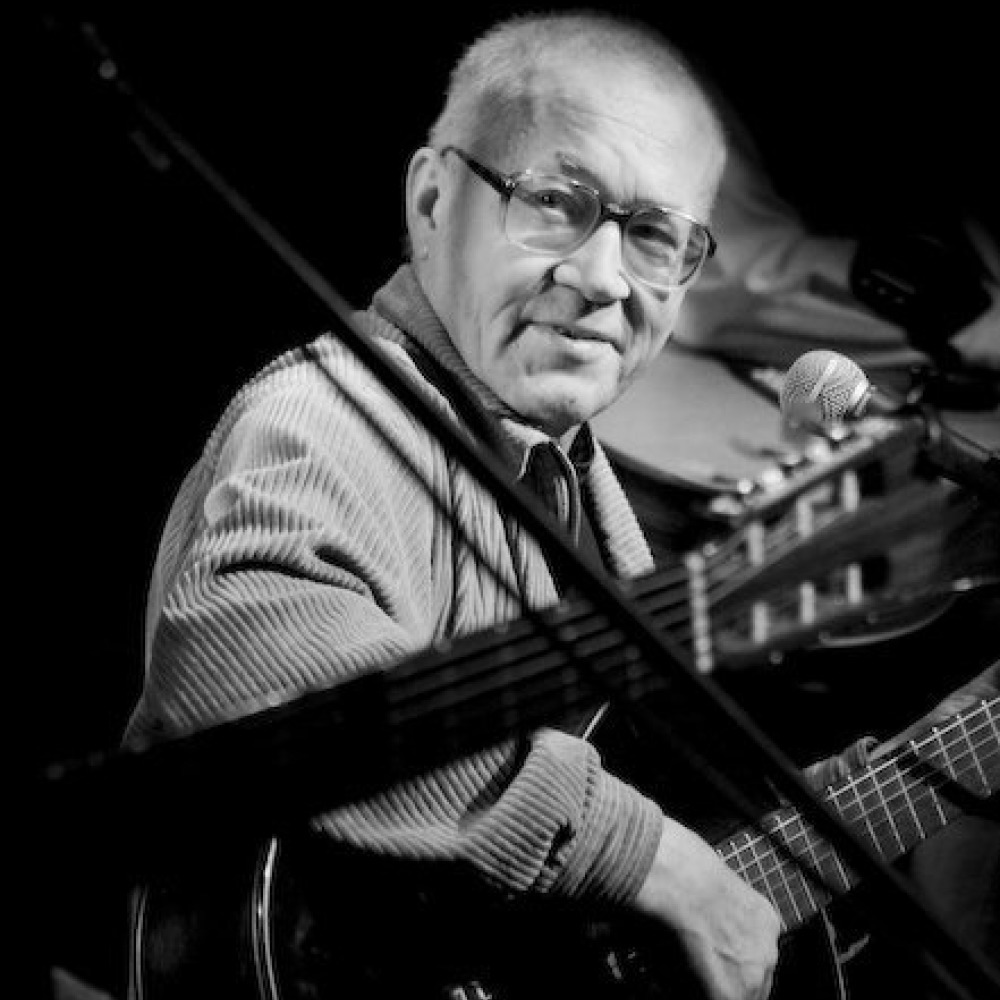Victor Luferov: The Bard

I was 16 years old when I first heard Victor Luferov’s song Meeting (Встреча). I had discovered a website created by Maria Shkolnikova, an early pioneer of web audio and text archiving, dedicated to Vladimir Vysotsky and other Russian bards, including Luferov. That site became a daily haunt. Its rich trove of music, lyrics, and stories captivated me.
Listening to Meeting opened something new in me. That song felt like an invitation into an intimate, unguarded world.
The guitar arrangement struck me as otherworldly—its cascading notes creating the illusion of three guitars playing in unison. And then there was his voice: deep, scratchy, and soulful, imbued with a yearning that felt both personal and universal. It was unlike anything I’d ever heard, and I listened to it obsessively, trying to unravel its mysteries.
Since this was the mid 1990s and the internet was still relatively new, I couldn’t find any videos of him playing the chords, and so I left it up to my imagination and ingenuity to attempt to recreate those chords and styles.
Listen below:
Well, hello there, sunlit platform,
I’ve arrived in the capital of my happiness.
Let my train roll back
To where I can never return.I fled lightly from that land,
Where I lacked both air and sunlight,
Where songs were mournful and dim,
Like a view of the world through a dusty windowpane.But here, it rained, and breathing is easy,
And on black asphalt, puddles melt tenderly.
The distance is misty, yet far sights are clear,
And lovers are flying among the clouds.A handful of rare words in a box—my only treasure.
In my hand—a single flower, so easily wounded.
And as a runaway slave recites a prayer,
Oh, so do I repeat your name, my love.I traded everything for your liberating captivity.
There can be no talk of returning.
And you, the cause of these wondrous changes,
Come flying to meet me in your winged dress.
– Translation by Alexander A. Pogrebinsky
A Tradition of Rebellion
Victor Luferov belonged to a younger generation of Soviet bards, a cultural phenomenon that combined the grit of urban street songs with the literary depth of Russia’s Silver Age poets. Bard music was a uniquely Soviet creation, born from the necessity of quiet resistance in a society that sought to homogenize thought. These songs, passed hand-to-hand via samizdat—homegrown recordings on cheap magnetic tapes—offered an alternative soundtrack to Soviet life, one that was deeply personal yet carried universal truths.

Luferov’s career was marked by a relentless drive to explore new creative horizons. His ability to push boundaries while remaining true to the bardic tradition is perhaps best encapsulated in his own words:
“There are those who are always against everything, loudly declaring their dissent without offering an alternative. And then there are those who, while critical of the status quo, have the strength and courage to create something new in its place. I strive to be the latter.”
This ethos defined Luferov’s work. His music was not a simple critique of the world but a proposal for something richer and more imaginative—a space where diverse cultural threads could intertwine.
The Early Years: Experimentation and Vision

Luferov’s path to music was far from straightforward. Born in Moscow in 1945, he initially pursued a degree in biophysics at the Moscow Veterinary Academy. His early career included stints as a lab assistant, janitor, and fireman, but music always pulled at him. In the late 1960s, he founded Oseneberi, one of Moscow’s first art-rock groups. As he explained in a 2001 interview:
“At the time, there was no such thing as a ‘rock band.’ We were called a ‘beat group.’ We combined electric sounds with strings and woodwinds, creating something entirely new. No one else was doing what we were doing.”
Oseneberi even experimented with the theremin, an instrument decades ahead of its time in mainstream music circles. They performed songs by the likes of Oleg Klyachkin and Vladimir Vysotsky, presenting them in avant-garde arrangements. Luferov described Vysotsky as “the first true Russian rock-bard,” someone whose raw energy and poetic intensity transcended genres.
Unfortunately, Oseneberi disbanded in 1970, a decision Luferov later called “a grand strategic mistake.” Yet the seeds planted during this period would flourish in his later projects, particularly his innovative fusion of bardic music and theatrical performance.
Elena Kamburova and the Bard’s Magnetic Presence

Elena Kamburova, the celebrated Russian singer, recalls the first time she saw Luferov perform in 1978 during a laureates’ concert for bardic music at the Gorbunov Palace of Culture. She describes how his opening lyrics, sung with a simplicity and democratic spirit, captivated her instantly:
In the well-like square of the courtyard
A musician came to us this morning,
Oh, my God!
And in the indifferent silence
He sang about birds and fire,
And about a single love.
Kamburova, deeply moved, later collaborated with Luferov for four years. She admired his theatricality and his ability to turn every song into a dramatic event. She recalls his tireless pursuit of new creative expressions, even going to great lengths to incorporate unique props and staging elements into his performances:
“On one tour, he purchased a massive theatrical set piece that wouldn’t fit in the plane’s baggage hold. Undeterred, he found a way to bring it along. That was Luferov—determined, resourceful, and always searching for something new.”
The Birth of Crossroads
In 1985, Luferov founded Crossroads (Перекресток), a song theater that became a hub for cultural experimentation. Combining music, poetry, and performance art, the theater blurred the lines between bardic tradition and avant-garde innovation.

“Theater of Song was my dream,” Luferov said. “When I was offered the chance to create a youth theater, I realized the time had come. Enough talking about it—it was time to act.”
Crossroads hosted everything from flamenco performances to literary evenings, reflecting Luferov’s belief that “the space of culture is unified.” He described the theater as a “crazy mixer of different cultures,” where rock musicians, bards, and performance artists could coexist and inspire one another.
One of Crossroads’ most ambitious projects was the Parade of Instruments on a Red Coat, a performance that combined traditional Russian folk instruments with avant-garde elements like the “hose-flute.” Luferov explained:
“It’s a multi-instrumental performance, blending ethnographic Russian folklore with urban folklore and avant-garde sounds. It’s about creating something new from the collision of these worlds.”
The “First Circle” and Brotherhood
Luferov was also a founding member of the First Circle (Первый круг), a collective of poets and musicians dedicated to elevating bardic music. Formed in the late 1980s, the group included notable figures like Alexander Mirzayan, Vladimir Berezhkov, and Nadyezhda Sosnovskaya.
“The First Circle wasn’t just a collaboration,” Luferov explained. “It was a brotherhood. We didn’t push each other aside or compete for recognition. We worked together to create something larger than ourselves.”
The group produced several theatrical programs, including Silver Age, which explored the roots of bardic music through the poetry of the Russian avant-garde.
The Art of Subtlety
Luferov’s songs oscillate between grand, expansive themes—freedom, nature, and artistic identity—and introspective explorations of love, friendship, and solitude. One of his most beloved songs, Leaf Fall (Листопад), reflects this intimate side, inviting listeners to gather in camaraderie and reflection:
Come, come in groups—like the autumn leaves.
Speak against, speak out of tune,
Speak haphazardly.
For God’s sake, come,
Smoke your pipes, shake the dust from your travels.
There are no fierce dogs in this house.
Yet Luferov was equally at home in expansive works like Horizon (Горизонт), a meditation on human resilience and the vastness of existence:
I live despite the blindness of earthly gravity,
And I pity the trees that fell flat to the ground.
I never tire of affirming myself
In the long list of the living.
A Legacy of Authenticity

Victor Luferov’s uncompromising vision often placed him outside the mainstream. He acknowledged this marginality with characteristic humility:
“The art we created was too serious for mass appeal. We drew from poets like Apollinaire and Prévert, crafting an aesthetic closer to art-rock than folk. It’s no surprise that we remained on the fringes.”
Even as financial struggles and illness defined his later years, Luferov remained dedicated to his craft. Diagnosed with lymphoma, he continued to perform and mentor young artists. He passed away in 2010, leaving behind a legacy of authenticity and creative daring.
For me, Meeting remains a touchstone. Its opening lines, sung in Luferov’s soulful, scratchy voice, still carry me back to that moment when I was 16, discovering the world of bardic music:
Well, hello there, sunlit platform,
I’ve arrived in the capital of my happiness.
Even now, those words linger, like a cherished melody refuse to fade. Every once in a while, as I’m walking down the hallway, or putting on my shoes, I’ll start instinctively humming that melody. Especially when I’m in a good mood. The most precious thing a man can do in life is to create something beautiful, to release it to the world, and to let others be inspired by it.
